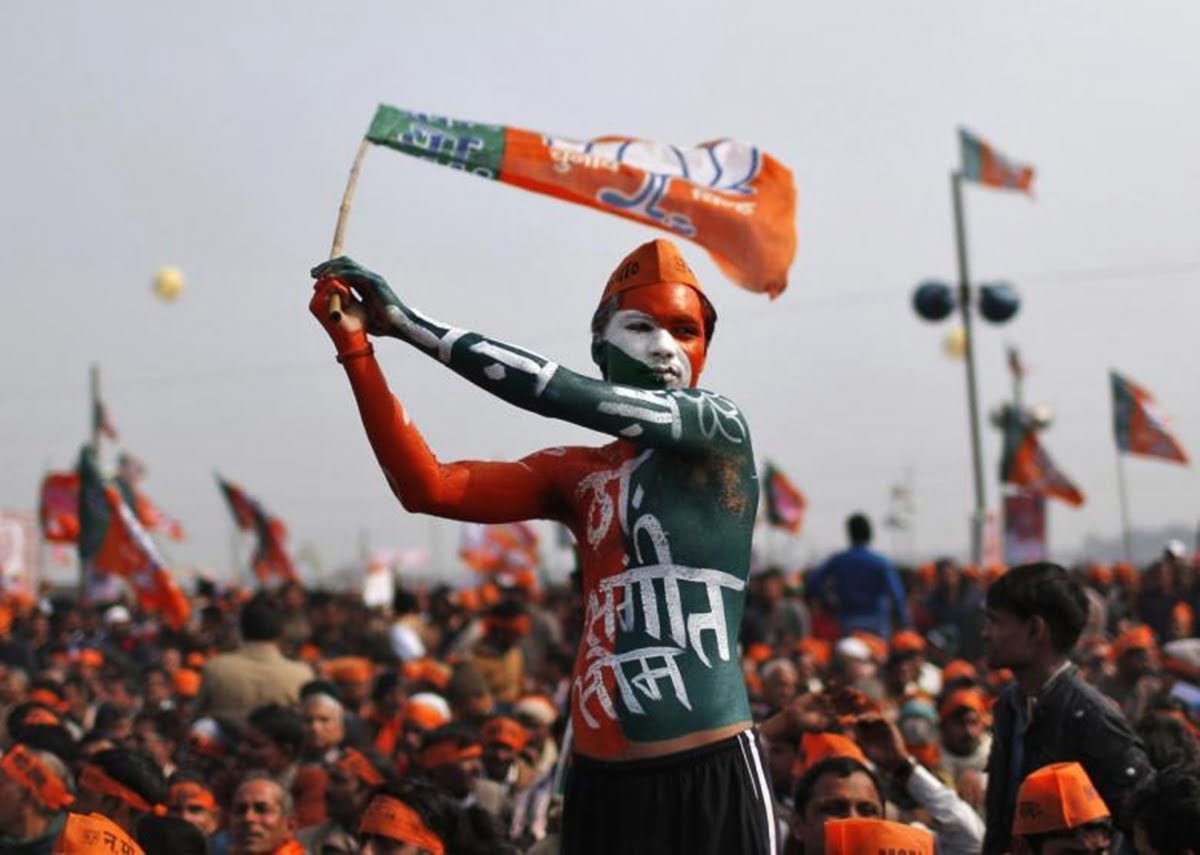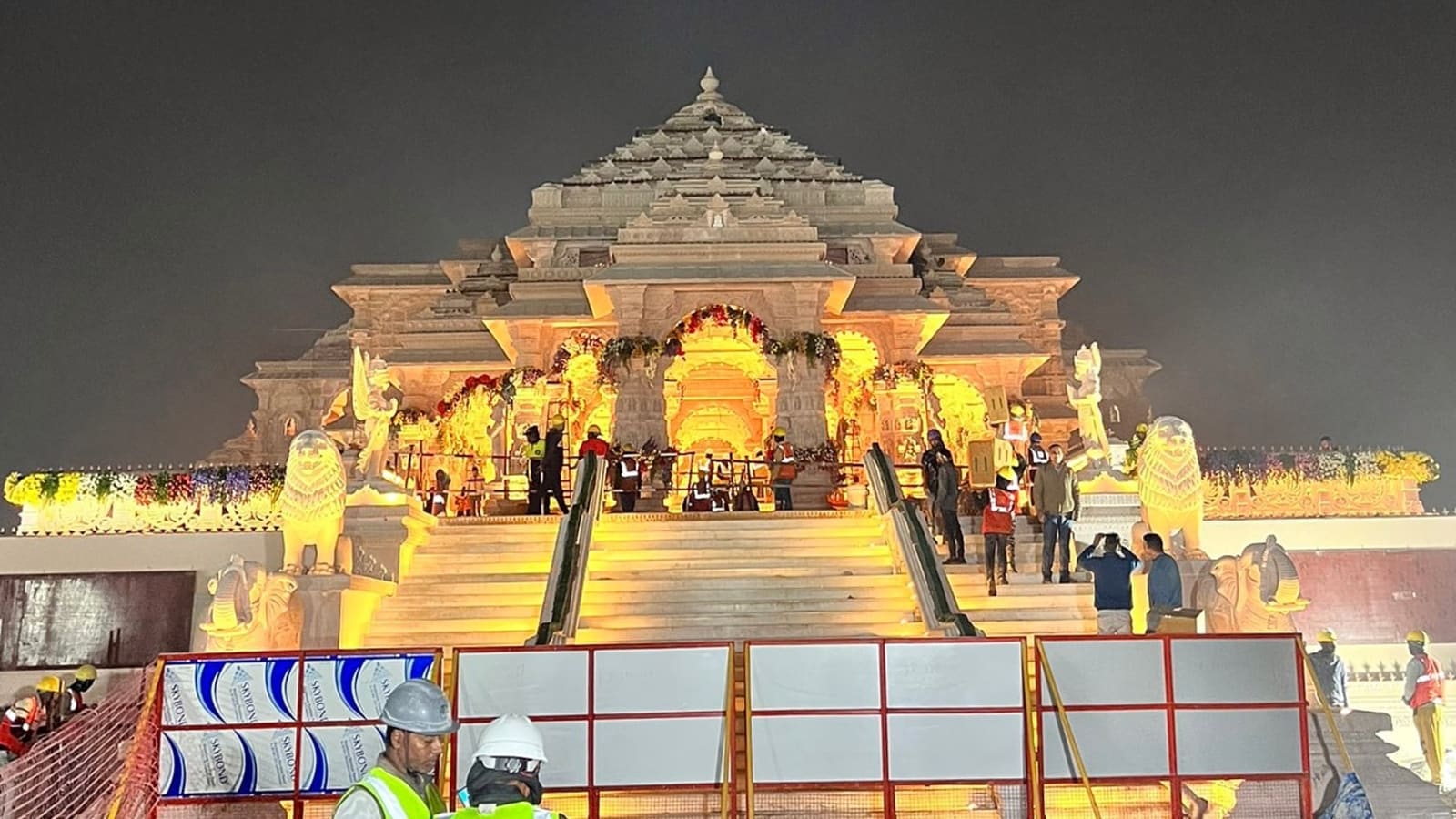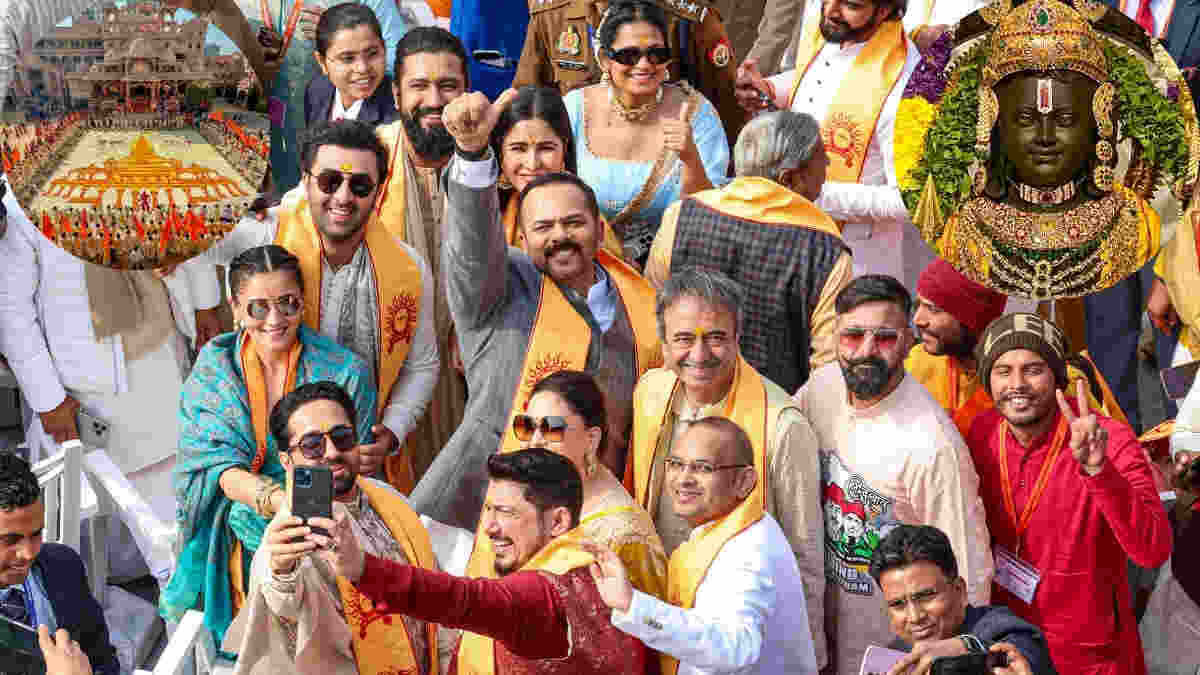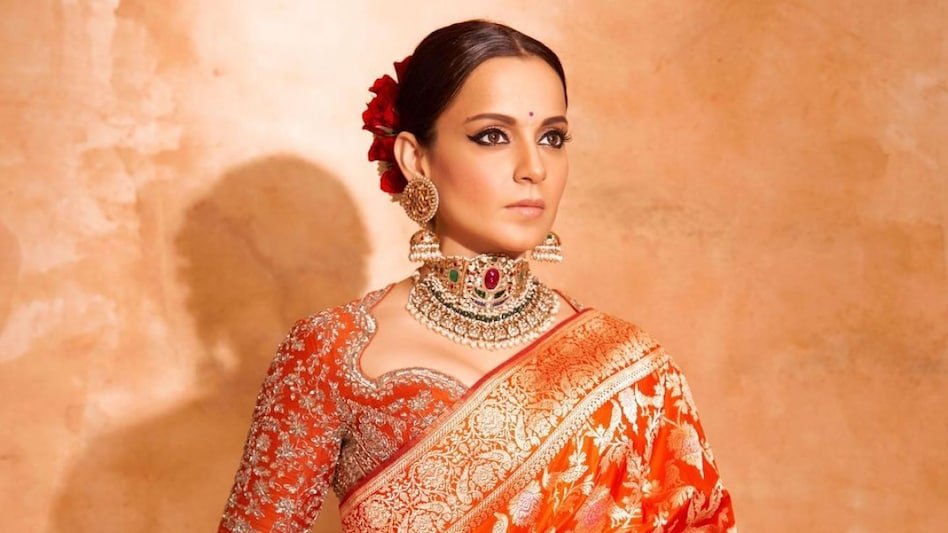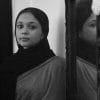Bollywood films have always been the indicators of India’s political conundrums – be it the angry Indian man of the post-liberalisation phase or the patriotic soldier of the nationalist phase. It has always played its part in framing India’s socio-cultural scenarios and was the first to let the world know about it. This has not changed as India enters its Hindutva phase; Bollywood is still the frontrunner and an active partner in the regime’s quest to frame its political narratives.
While political leanings were shown more covertly in Bollywood, both by the films and the actors, this line of separation between the state and cinema has more or less disappeared since 2019.
This practice has taken a notable shift since 2019. While political leanings were shown more covertly in Bollywood, both by the films and the actors, this line of separation between the state and cinema has more or less disappeared since 2019. With Modi’s second term as the country’s Prime Minister, the elections are flooded with Bollywood actors being the face of the political parties, especially the BJP. This term also gave rise to the band of propaganda films motivated by Hindu nationalist symbols.
The most recent development includes Kangana Ranaut being nominated as the BJP’s candidate in Mandi in Himachal Pradesh and Doordarshan’s decision to air Sudipto Sen’s propaganda film The Kerala Story. On one side, an actor has been directly immersed in playing BJP’s representative in propagating Hindu supremacist politics. On the other hand, a media institution has been used in openly propagating Islamophobia.
The BJP hijack of Bollywood
BJP’s hold on Bollywood became more evident and direct during the 2019 General Elections, with a host of hyper-nationalist propaganda films, including Uri: The Surgical Strike, Thackeray, and The Accidental Prime Minister. These films, especially Uri, allowed the BJP to flash their victories on the voters, closing their eyes to the governing incompetencies that plagued their rule. Uri was exempted from the payment of taxes in Uttar Pradesh by Adityanath, who also declared Tanhaji, a film showcasing a Maratha warrior fighting against the “invading” Mughals, tax-free in 2020. This tax-free status was not given to the film Chhapaak, which was based on the life of acid-attack survivor Laxmi Agarwal, released alongside Tanhaji.
The Accidental Prime Minister was also BJP’s attempt to ego-boost themselves by displaying the failures of Congress. The official Twitter handle of BJP tweeted the film’s trailer by calling it a ‘riveting tale of how a family held the country to ransom for 10 long years’. Anupam Kher, who played the role of Manmohan Singh in the film, is also an ardent supporter of the BJP and was seen active in the electoral campaigning of his wife, Kirron Kher, who was elected from Chandigarh in 2019.
The official Twitter handle of BJP tweeted the film’s trailer by calling it a ‘riveting tale of how a family held the country to ransom for 10 long years’.
The actors had also supported BJP’s regressive policies like demonetisation, when celebrities like Amitabh Bachchan, Ajay Devgn, and Karan Johar lauded the PM for his ‘masterstroke move.’ This unflinching support to the majoritarian regime was repeated during the Farmers Protest of 2021 when Bollywood stars and other celebrities extended their support to the government’s stance despite internal opposition and international criticism directed at the government.
On January 22 of this year, the prominent faces of Bollywood were present in Ayodhya for the inauguration of the Ram Mandir, where they were seen soaking themselves in the “glory” of the newly constructed temple, built on the remnants of the Babri Masjid. This was Bollywood showing its solidarity in the BJP’s extermination of Muslims in the country.
Actors fielding as BJP candidates
Kangana Ranaut is the latest Bollywood celebrity to receive a BJP ticket, thanks to her loyalty to the right wing. Injected into the political hullabaloo through her stance against nepotism in Bollywood, she was quick to shift gears and join the BJP through her Islamophobic remarks. Kangana and her sister were charged with an FIR as they called for the genocide of Muslims. Her pro-BJP stance was made clear on multiple other occasions, including her remarks about the protesting farmers of 2021 as ‘terrorists’.
Another major Bollywood celebrity joining the Parliament through the BJP is Sunny Deol, who was elected from the Gurdaspur constituency in 2019. The yielding of Bollywood celebrities for the popularity they bring to the table often costs the people their votes and the chance of representation. As for Sunny Deol, he is among the six BJP and two TMC MPs who haven’t spoken in the parliament in the last five years. Deol’s filmography is also marked by hypernationalist cinema, where he often portrays a proud Indian (read as Hindu) trying to save the country from terrorists (read as Muslims). His characters of patriotic Hindu heroes in multiple films like Jaal: The Trap and Blank are always on the run against Muslim villains who are often terrorists. Arun Govil, the actor who played Lord Ram in the 1987 TV series Ramayan, is also contesting as a BJP candidate from Meerut.
Many actors have also been campaigning for BJP in various states besides being candidates.
Many actors have also been campaigning for BJP in various states besides being candidates. The most notable among them is Vivek Oberoi, who played the role of Narendra Modi in his biopic PM Narendra Modi (2019). Modi’s victory in 2019 was also celebrated by many, including Ajay Devgn, who tweeted that ‘the country knows what is right for them and they have made their choice’ after BJP’s 2019 victory.
While the art space is regarded as one of the fiercest voices of opposition, the Indian scenario has been walking the other way. While the most revered actors in Hollywood, including Meryl Streep, used her Golden Globes acceptance speech to criticise Trump’s administration, Bollywood has been competing to get into BJP’s good books.
Bollywood for propaganda
When it comes to actors openly being part of BJP propaganda, there is nobody better than Hindutva’s poster boy, Akshay Kumar. As Bhavya Dore suggests in her article, Akshay Kumar’s career has gone through many shifts, starting out as an action hero, and now he wears the persona of an ‘enlightened nationalist hero.’ While stars like Shahrukh Khan have been openly called a terrorist by Adityanath for his Muslim identity, Kumar shines as the true Indian because of the religion he was born into and the political affiliation he is making every day. His interview with Modi, termed ‘non-political,’ was among the many instances that cemented Bollywood’s love affair with Hindutva.
This year’s elections come with a host of propaganda films that are loaded with hatred against Muslims and other secular institutions in the country. These films are produced, supported, and glorified by the Hindutva forces. Even though films made in India, especially Bollywood, have remnants of the glorified Hindu past and were majoritarian, the open war cry has been found since Modi sat in centre.
Along with this, films like The Kerala Story and Article 370, which talk about issues that are contemporary, have been used to spread lies and fabricated circumstances. When the whataboutery question of freedom of expression is being raised with the making of these films, what answers do we have for the government openly supporting these films that harm one section of this country? Doesn’t this freedom extend to films like Bheed, which openly showed the condition of the marginalised sections during the pandemic?
Through popularising certain films and banning certain others, the government is controlling the narrative – the creation of a Hindu nation where minorities can exist but without a voice. Here, the ruling class is following the Nazi practice of controlling cinema in propagating ideas – the films that fit the narrative are made, others are banned.
About the author(s)
Hajara Najeeb is an Independent Researcher working on issues of Minority Rights and Affairs, Gender, and Politics.

